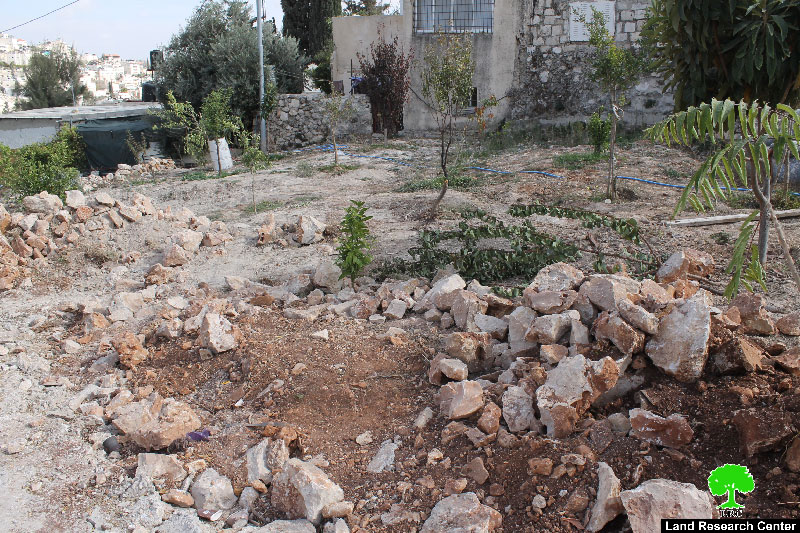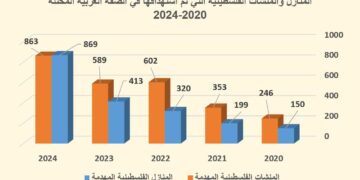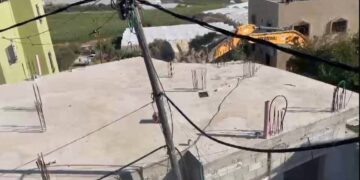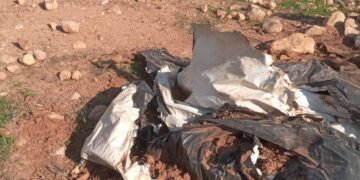The dozers of Israeli municipality in Jerusalem demolished on November 16, 2016 a residence relative to Shweiki family and horse stable in the Jerusalem neighborhood of Al-Thori on the claim of "unlicensed construction".
It should be marked that the demolished structures belong to citizen Alaa Issa Shweiki, whose family was rendered homeless due to the demolition.
It is reported that the occupation forces along with bulldozers raided Al-Thori and surrounded the establishments of Ala’ Shweiki before proceeding with the demolition process.
The affected citizen, Ala’ Shweiki, explained that the forces raided the area around 1:00 a.m. and surrounded a horses’ barracks and an agricultural room. Around 4:00 a.m. municipality employees along with a bulldozer raided the area and carried out the demolition without prior warning or notice.
He also explained that the bulldozers demolished a 20-square meters barracks built from bricks and roofed with tin plates, and also demolished a 15-square meters room.
Shweiki pointed out that the establishment was built 5 years ago, and the municipality imposed a 40-thousand NIS building violation fine on him two and a half years ago which he was committed to paying; he was surprised by the sudden demolition.
Shweiki also explained that the bulldozers swept the land and removed around 20 fruitful trees of peach and pomegranate during the demolition process.
Land Research Center LRC sees that demolitions contradict with all the International conventions and Humanitarian laws including:
Article 17 of the (1948) Universal Declaration of Human Rights stating: “Everyone has the right to own property alone as well as in association with others. No one shall be arbitrarily deprived of his property.”
Section ‹G› of article 23 of the (1907) The Hague Conventions asserting: “In addition to the prohibitions provided by special Conventions, it is especially forbidden to destroy or seize the enemy's property, unless such destruction or seizure be imperatively demanded by the necessities of war.”
Article 53 of the Geneva Fourth Convention (1948) declaring: “Any destruction by the Occupying Power of real or personal property belonging individually or collectively to private persons, or to the State, or to other public authorities, or to social or cooperative organizations, is prohibited, except where such destruction is rendered absolutely necessary by military operations.”
Section 1, Article 11 of the International Covenant on Economic, Social and Cultural Rights (1966): “The States Parties to the present Covenant recognize the right of everyone to an adequate standard of living for himself and his family, including adequate food, clothing and housing, and to the continuous improvement of living conditions.
Prepared by
The Land Research Center
LRC
















